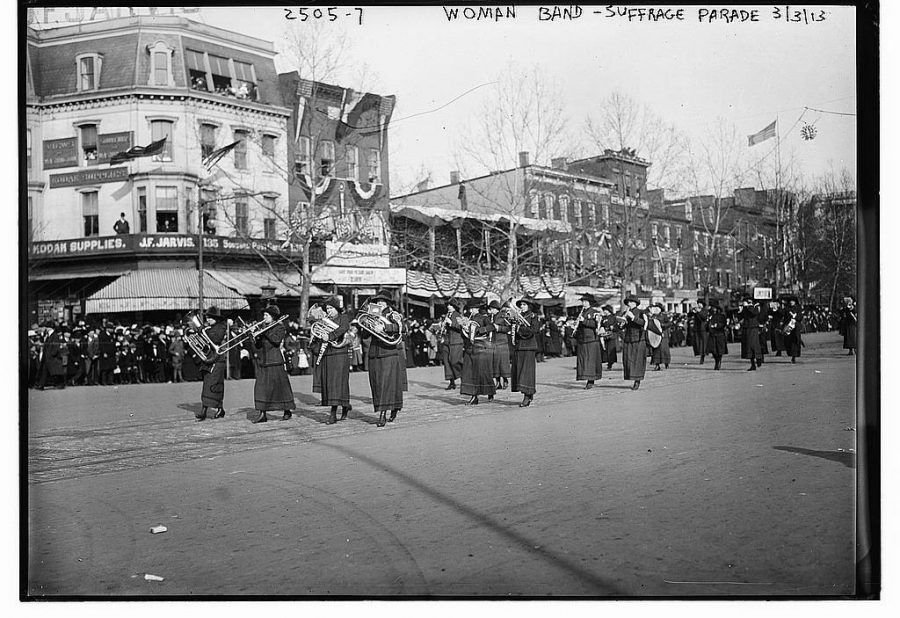Women’s suffrage: How far have we come?
This Monday will mark 99 years since the Senate passed the 19th Amendment, which gave women the right to vote.
Since then, the feminist movement has overcome a multitude of challenges, including the struggle to speak out against oppression. Before the amendment was passed, America was in the midst of a war, so citizens thought that women who fought for their rights were traitorous for taking the nation’s attention away from the war effort.
But a century later, many people feel that women who speak out against oppression are strong and independent. Sophomore Tia Lemberg said that one woman who influences her is Emma González, a teenage gun-control activist. Lemberg described her as “so strong in everything she does. She is a very powerful and emotional speaker, and one that connects with the audience.”
Many girls feel that women who take a stand are brave. “I have immense respect for women who shatter stereotypes,” Health Teacher Ms. Susan Kolesar said. “I am personally amazed when I see women doing things that have not been done before.”
However, in some settings women are still not granted the same authority as men. Junior Briana Brown feels that the girls in her classes have trouble gaining respect whenever they speak in an open forum with boys. “Especially when it comes to raising your hand in class or having a presentation, you can clearly see that there are some social aspects with how girls and guys interact,” Brown said. “Girls are not given as much respect as guys and men are, and it continues into whatever we do with our life.”
In classrooms and all around America, women often are criticized for speaking their minds. “There is still the stereotype that she is an overbearing woman if she tries to keep arguing for equal rights,” Lemberg said. “People say, ‘You have enough.’ It’s still seen as annoying and pestering instead of being seen as an issue.”
Senior Chloe Brown agrees, believing that although the country has come a long way since 1919, it still has a long way to go when it comes to women’s rights.
“There is still some stigma around the word ‘feminist’ and what that means to different people,” said Brown. “I think we’ve come a long way, [but there is] still a ways to go in terms of having conversations.”

